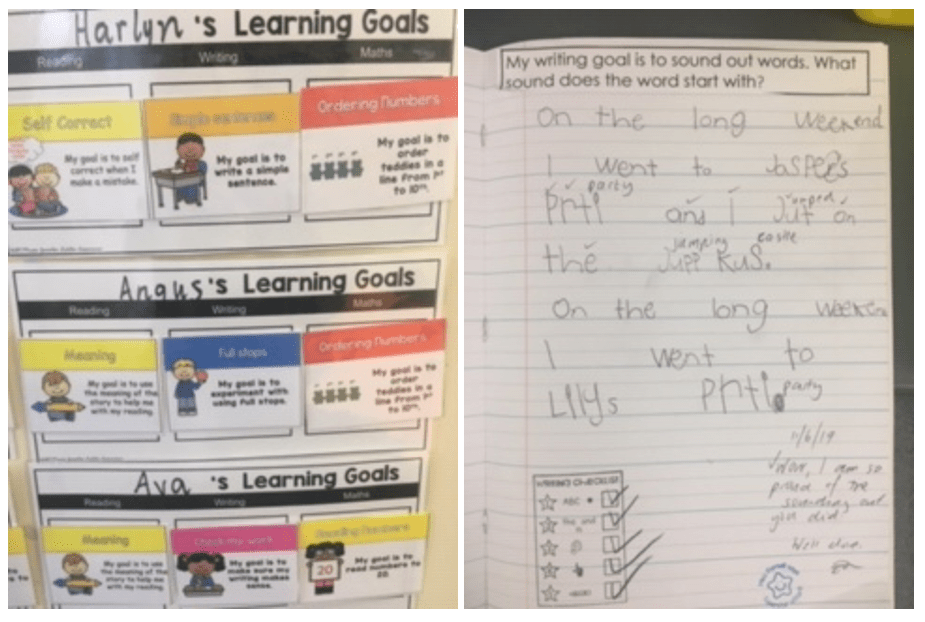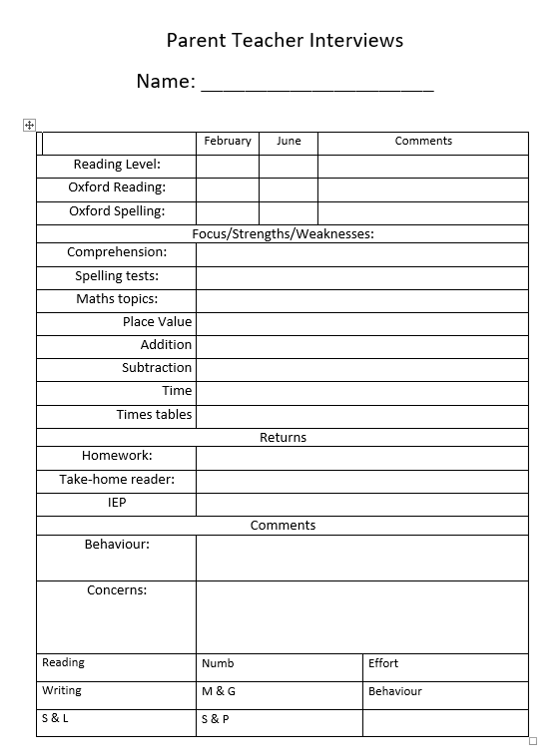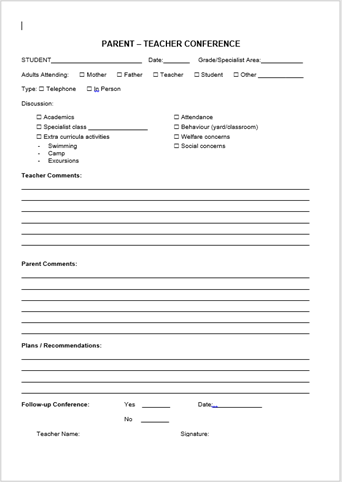
By Emma Parnell
EDITION #7 – How do I cope with a challenge?
Published – 24th July 2019
Emma Parnell: Literacy Leader Pearcedale Primary School

‘An essential component of our approach is that assessment data is not used to identify problems; assessment is used to identify the zone of proximal development. This is the point at which the student is most ready to learn, and where intervention for the student will have the greatest impact.’(Griffin, Murray, Care, Thomas & Perri, in press).
All teachers in Victorian schools must report to parents, caregivers or guardians twice a year using a five-point scale. Reports are usually distributed to parents at the end of terms two and four. This report is a confidential and legal document that communicates individual student information about progress against the Victorian Curriculum F-10 achievement standards. The report should identify the level of achievement reached, how they’re progressing to meet the next level of achievement, where they need to improve, and the next steps for the student.
This article will consider:
- Teacher and parent relationship
- Writing student reports
- Parent-Teacher Conferences/Interviews
Teacher and Parent Relationship
Evidence suggests that parental engagement strategies have the greatest impact when: they are focused on linking behaviours of families, teachers and students to learning outcomes; when there is a clear understanding of the roles of parents and teachers in learning; when family behaviours are conducive to learning; and when there are consistent, positive relations between the school and parents. (Emerson, Fear, Fox & Sanders, 2012, p. 32).
It is essential to build strong, professional relationships with families in your classroom (See articles on parent relationships by clicking here). Regularly communicating to parents about student progress is important as it strengthens family partnerships. This is done by engaging teachers and families in meaningful communication about students’ learning needs. Student progress shouldn’t be a shock to parents when they receive the formal report in June and November. If a student isn’t progressing, those conversations should have already happened. This can be done in a number of ways, such as meeting before or after school to show work examples, discuss year level expectations and Individual Learning Plans. As a graduate it can be helpful to have your mentor or team leader be part of those discussions with you and the parent. Sometimes these conversations can be challenging (see Simon Judkins article on challenging conversations in this edition). Parents might not agree with you and the assessment you have made. Sometimes it can be difficult to arrange times for parents to meet with you to have these conversations. A telephone conversation can be arranged if parents are unable to meet in person.
Communicating learning goals with parents
An important element in assessing students is to set appropriate, challenging and realistic learning goals for all curriculum areas. Learning goals must provide challenge for all students. By setting challenging goals, the teacher develops and maintains a culture of high expectations for all students. Principle 1 of the Practice Principles for Excellence in Teaching and Learning elaborates on this concept.
From my teaching experience, I have learned the importance of communicating student learning goals to parents. There are many ways to do this. At present I choose to use an app, See Saw, but email and student diaries can be just as effective.
Learning goals are set for students of varying abilities and characteristics, and it is important to inform parents of this. Assessment provides teachers with evidence of prior learning, and the information they need to set goals that offer each student the appropriate level of stretch or challenge. Effective teachers design assessment tasks that require students to demonstrate knowledge and skills at a range of levels.
When setting goals think about your role as the teacher:
- Have I assessed students’ prior knowledge?
- Have I used evidence to differentiate learning goals?
- Have I demonstrated a purpose for learning by linking a specific activity to the learning goals?
- Have I provided realistic but challenging goals?
- Have I recognised effort towards achieving goals?
When setting goals think about the student:
- Are they actively engaged with the learning goals to plan their own learning? I am teaching Foundation this year and I ensure all my Foundation students are aware of their learning goal. I do this by keeping it simple and visible to students.
- Are students self-monitoring their progress, and providing evidence they believe demonstrates they have achieved their goals? Consider using High Impact Teaching Strategies to do this. For example, consider setting up a system in the classroom that allows students to show their progress towards their leaning goal.
Here are some examples of how this might look:

Writing Student Reports
Report writing can be a stressful time of year for teachers. For a graduate teacher, the task can become quite overwhelming. Where do I start? What do I write? How can I individualise my reports? When reporting assessment outcomes to parents you should keep all communication factual – this is where the collation of assessment data is important. This collation becomes your evidence of student progress.
To assist with your reporting period, here are some helpful tips:
Keep it simple
When writing reports to parents, it is important that you make each comment easy to understand. Try to use two connected ideas per sentence to explain how the student is progressing. For example: ‘When problem solving, Sarah should explain her mathematical thinking’ (first idea) ‘rather than simply recording the answers’ (second idea).
Stick to the point
When report writing, it can be very easy to divert from the point and include unnecessary information. Parents only need to be informed about important matters that are relevant to their child. Surplus information will cause confusion. For example, ‘Sarah is able to 1:1 matching when counting small collections of amounts.’
Avoid teacher jargon
Most parents don’t know ‘teacher talk’. Avoid using teacher jargon and specialist terms when writing reports. Present information in a clear and precise manner which makes it easy for parents to understand. For example: ‘When reading, Sarah is able to recognise many common words.’
Inform parents about their child’s level of achievement
When report writing, avoid detailed curriculum descriptions or lists of all the units and activities you have covered in class. Parents want to know how their child is performing in relation to the expected levels of achievement, and areas where their child needs to improve. For example: ‘In Reading, Sarah is working above the expectations of her year level and is being extended to think deeply about texts during teacher-led conferences.’
Use evidence to support your comments
When writing reports, refer back to samples of student work. Use these work samples as evidence to indicate individual student achievements against the standards. For example: ‘When reading the text Feathers for Phoebe, Sarah identified the main events in order.’
Don’t leave them until the last minute
Collecting data throughout the school year is important for report writing. It enables you to track the progress of each student and their learning and provides you with a collection of quality evidence. I like to make sure all my data collation is up-to-date.
I have found it helpful to get a few people to read over my comments. It is likely that your school will implement a formal process to support you to meet school expectations for written reports. However, it is in your interest to use your networks to get feedback on your reports before the formal school process. Please remember you are not alone during this process. Ask your mentor or team leader to share some sample comments to give you an idea of what is expected.
Parent-Teacher Conferences/Interviews
The Parent-Teacher Conference or Interview is a formal meeting between the teacher and the student’s parents or caregivers. The purpose of the meeting is to continue to build positive relationships, share information about students’ interests and learning and discuss the student’s report in more depth. These meetings are a valuable time to further understand the students in your class which will further assist your teaching. Again, each school determines the expectations for these conferences/interviews so discuss this with your mentor.
Parents can attend the meeting feeling anxious so it is important that you are communicating regularly with all parents. A parent should not be surprised when they receive their child’s report or come to interviews. If you have concerns they should have been discussed during the year. It is important to stress to parents that you and them are working together to ensure their child has the best opportunities to succeed at school. I think keeping that focus at the centre all of discussions will not only help you but also the parents.
The following tables are examples of a school-determined proforma to help guide and structure interviews. They were formed at a school level in response to feedback from teachers.
Before Parent-Teacher Conferences/Interviews:
- Read through all student reports and prepare discussion points
- Use a template similar to Table 1.1 to note discussion points
- If parents/carers need a translator, check that the school has organised this before the conference
- Consider whether you need to arrange separate conferences for split families.
- Print your timetable for the conferences
- Have parent names next to the student so you can greet them properly.
Table 1.1

During Parent-Teacher Conferences/Interviews:
- Use a template similar to table 1.2 and record parent responses such as family issues, behaviour, friendship issues
- Have a timer to ensure you don’t run over time
- Celebrate student success by sharing work samples. I often have their writing books to share with parents
- You might need to discuss Individual Learning or Education Plans with parents. This could be the progress on an existing plan or preparing to start a new plan. Be sure to check the school expectations in this area.
Table 1.2

After Parent-Teacher Conferences/Interviews:
- Keep in regular contact with parents to follow up on any agreed plan.
- Record any notes taken using the school’s preferred system.
Further tips to effectively report to parents
Celebrate student success:
- Don’t communicate with families simply to check a box on a checklist. Create a conversation in order to further assist your teaching but most of all to celebrate the success of the learning that has occurred.
Communicate high expectations:
- Your parent-teacher communication plan should be clear, consistent and set high expectations for student performance in class. This will put parents on your side and enable them to reinforce your expectations in the home.
Communicate early and often:
- Communicating high standards from the beginning of the year will set you up to have much more objective conversations with families about individual students.
Choose communication tools that work for parents:
- Ask parents what communication methods are best for them. Do not assume that parents are all the same. Using multiple communication methods allows parents to hear from you in ways that work for them.
A key takeaway
Be well prepared for reporting assessment outcomes to parents. Collect evidence of student learning and make regular efforts to communicate with parents about their child’s progress.
Discussion with your mentor
- Discuss your school’s assessment and reporting policy and expectations.
- Consider ways that you might be able to more regularly communicate student progress to parents outside of formal reporting expectations.
- If applicable, look at some of your mentor’s previous or current reports and discuss these together.
References
Department of Education and Training, Practice principles for excellence in teaching and learning, https://www.education.vic.gov.au/school/teachers/teachingresources/practice/improve/Pages/principlesexcellence.aspx
Department of Education and Training, High Impact Teaching Strategies, https://www.education.vic.gov.au/school/teachers/teachingresources/practice/improve/Pages/hits.aspx
Emerson, L., Fear. J., Fox, S., and Sanders, E. (2012). Parental engagement in learning and schooling: Lessons from research. A report by the Australian Research Alliance for Children and Youth (ARACY) for the Family-School and Community Partnerships Bureau: Canberra.
Griffin, P., Murray, L., Care, E., Thomas, A. and Perri, P. (in press) Developmental assessment in literacy. Assessment in Education.
Vygotsky, L. S. (1986) Thought and language. Boston: MIT Press.